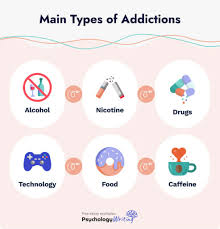Melatonin: The Natural Sleep Aid
Melatonin is a hormone produced by the pineal gland in the brain that regulates our sleep-wake cycle. It is often referred to as the “sleep hormone” because it helps us fall asleep and stay asleep.
As we age, our bodies produce less melatonin, which can lead to difficulty falling asleep and staying asleep. This is why many people turn to melatonin supplements as a natural sleep aid.
Melatonin supplements are widely available over-the-counter and come in various forms such as pills, gummies, and even sprays. They are generally considered safe and effective for short-term use.
However, it’s important to note that melatonin is not a sedative and does not induce sleep like prescription sleeping pills. Instead, it works by signaling to our body that it’s time to sleep. This means that melatonin supplements should be taken about an hour before bedtime to allow enough time for the body to respond.
It’s also important to follow recommended dosages when taking melatonin supplements. Taking too much can actually have the opposite effect and disrupt your sleep cycle.
While melatonin is generally safe for most people, there are some groups who should avoid taking it or consult with their doctor first. This includes pregnant or breastfeeding women, children under the age of 18, and people with certain medical conditions or taking certain medications.
In addition to its role in regulating our sleep-wake cycle, research has shown that melatonin may also have other health benefits such as reducing inflammation and improving immune function.
Overall, if you’re struggling with sleep issues or looking for a natural way to improve your sleep quality, melatonin may be worth considering. Just be sure to follow recommended dosages and consult with your doctor if you have any concerns or medical conditions.
Melatonin: Frequently Asked Questions
- What does melatonin do?
- What is the side effect of melatonin?
- Who should not take melatonin?
- Is it OK to take melatonin every night?
What does melatonin do?
Melatonin is a hormone produced by the pineal gland in the brain that regulates our sleep-wake cycle. It helps us fall asleep and stay asleep by signaling to our body that it’s time to sleep. Melatonin levels naturally rise in the evening as it gets dark and decrease in the morning as it gets light, which is why we tend to feel more awake during the day and sleepy at night.
Melatonin supplements are often used as a natural sleep aid for people who have trouble falling asleep or staying asleep. They work by supplementing the body’s natural melatonin production, signaling to the body that it’s time to sleep.
In addition to its role in regulating our sleep-wake cycle, research has shown that melatonin may also have other health benefits such as reducing inflammation and improving immune function. However, more research is needed to fully understand these potential benefits.
It’s important to note that while melatonin supplements are generally considered safe and effective for short-term use, they should be taken according to recommended dosages and under the guidance of a healthcare provider if you have any concerns or medical conditions.
What is the side effect of melatonin?
While melatonin is generally considered safe for short-term use, there are some potential side effects that you should be aware of. These may include:
- Daytime sleepiness: Taking too much melatonin or taking it too close to waking up can cause drowsiness and fatigue during the day.
- Headaches: Some people may experience headaches as a side effect of taking melatonin supplements.
- Dizziness: Melatonin can cause dizziness or lightheadedness in some people.
- Nausea: Taking melatonin on an empty stomach can cause nausea or stomach discomfort.
- Mood changes: In rare cases, melatonin may cause mood changes such as depression, irritability, or anxiety.
It’s also important to note that melatonin supplements may interact with certain medications such as blood thinners, antidepressants, and seizure medications. If you’re taking any prescription medications, it’s important to talk to your doctor before taking melatonin supplements.
Additionally, pregnant or breastfeeding women and children under the age of 18 should avoid taking melatonin supplements without consulting with their doctor first.
While these side effects are generally mild and uncommon, it’s important to be aware of them when considering using melatonin as a sleep aid. As with any supplement or medication, it’s always best to consult with your doctor before starting use.
Who should not take melatonin?
While melatonin is generally considered safe for most people, there are some groups who should avoid taking it or consult with their doctor first. These include:
- Pregnant or breastfeeding women: There is not enough research to determine the safety of melatonin supplements during pregnancy or while breastfeeding.
- Children: Melatonin supplements are not recommended for children under the age of 18, as there is not enough research on their safety and effectiveness in this age group.
- People with certain medical conditions: Melatonin may interact with certain medications and medical conditions such as diabetes, depression, high blood pressure, and seizure disorders. It’s important to consult with a healthcare provider before taking melatonin if you have any of these conditions.
- People with allergies or sensitivities: Some people may be allergic or sensitive to melatonin supplements, which can cause adverse reactions such as headaches, dizziness, and nausea.
It’s always best to consult with a healthcare provider before taking any new supplement or medication, including melatonin supplements. They can help determine if it’s safe and appropriate for your individual needs and health status.
Is it OK to take melatonin every night?
Melatonin is generally safe for short-term use, but it’s not recommended to take it every night for an extended period of time without consulting with a healthcare professional.
The reason for this is that our bodies naturally produce melatonin, and taking supplements every night can disrupt the natural production and regulation of this hormone. This may lead to dependence on the supplement to fall asleep, which can make it harder to fall asleep without it.
In addition, long-term use of melatonin supplements may have potential side effects such as headaches, dizziness, and daytime drowsiness. It’s also important to note that melatonin supplements should not be used as a replacement for healthy sleep habits such as avoiding caffeine and electronics before bedtime, maintaining a regular sleep schedule, and creating a relaxing sleep environment.
If you’re considering taking melatonin supplements every night to help with your sleep issues, it’s best to consult with your healthcare provider first. They can help determine if it’s safe for you and recommend appropriate dosages based on your individual needs and medical history.




